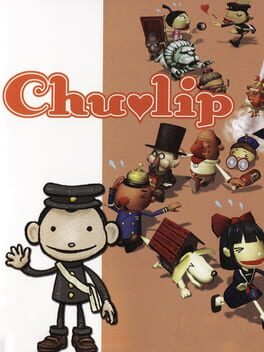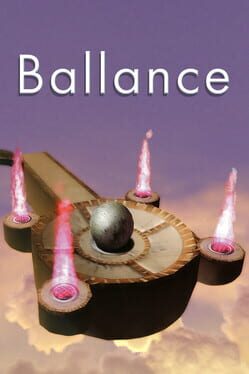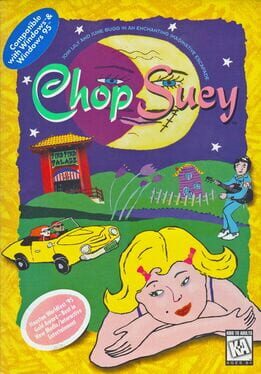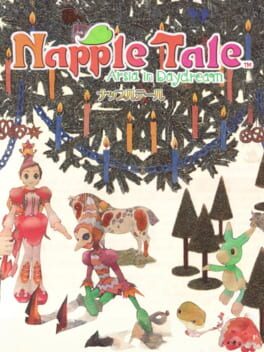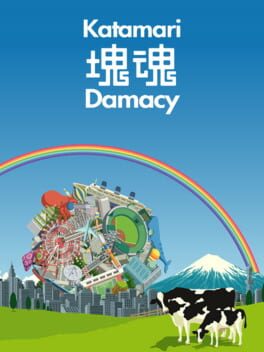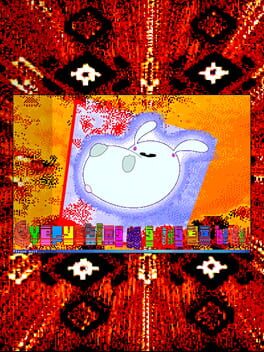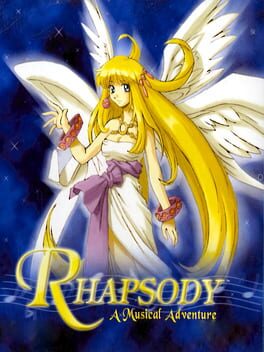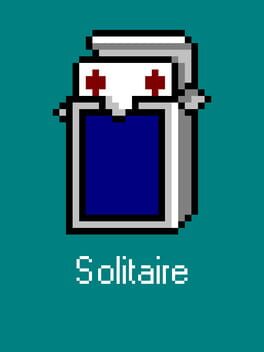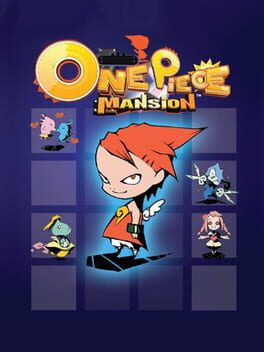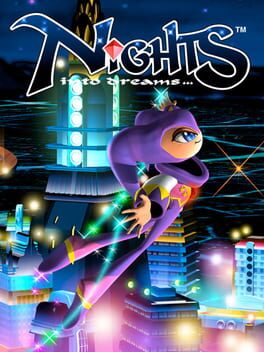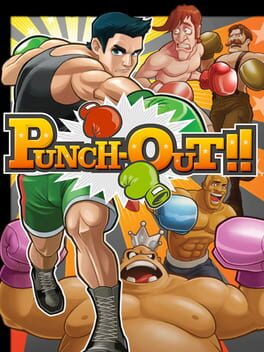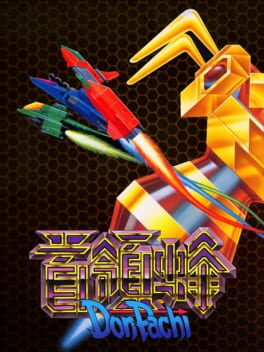214 Reviews liked by anita
Chulip
2002
(i put some hot tips on playing chulip at the end of this review and i beg you to look at them, if nothing else here, if you are planning to play this!!!!)
moon, chulip's predecessor that laid the foundation for its general gameplay and writing style, is a game about "love" in a broad sense. you must observe people, hear their thoughts on things/others, give items, and practice good timing and patience while each tick of the timer brings you closer to "death". you give "love" and in turn receive it as a kind of experience, which as it accumulates allows the player-character to persist in the world for lengthier periods of time. the idea behind this "levelling up" with love, to extend this life timer, is that love is what drives us to exist at the most fundamental level.
moon ties its passivity of the player into a critique on rpgs' getting experience through violence and its obfuscation of that violence, and forms much of its identity around this. despite some uneven execution, i do think its statement of intent that comes out of this critique, taken more broadly a thesis on what we take from games in general, makes moon an incredibly passionate game in own right. but its kind of passivity presents its own problems to me; you become an intangible ghost in moon's world, impervious to all its elements EXCEPT for time. it presents its own challenges for the player through with the concept of passing time, but because its only really the timer and being patient enough you'll have to worry about (and you practically forget about the timer once your love level is high enough), i do feel like there's some lack of complexity to moon's definition of "love" past this. this lack unfortunately lends itself to simplistic woobified arguments for moon that arent totally its fault, that its a cutesy escapist sim patterned after animal crossing, revolutionary just because its non-violent, smoothing out the complexities and contradictions that do exist within the game.
yoshiro kimura, one of moon's three main designers and the one responsible for the bulk of its script, would go on to found punchline and create its first game, chulip, after suffering a health crisis and travelling the world (not sure in which order, but i think both inform this game's figurative/literal troubles of the heart and its internationalism, respectively). chulip is one of three spiritual sequels to moon along with giftpia (by moon designer kenichi nishi's skip inc) and endonesia (by moon designer taro kudo's vanpool), all three of which lift moon's "love" gathering mechanic but ditch the rpg critique to utilize it for stories about growing up and adolescence...at least from what i can tell, because only chulip has an english translation. i believe giftpia is about considering what path one takes to realize they are an adult, and i believe endonesia frames adulthood as an understanding of one's own emotions and rejecting escapism, but i'd love to be able to understand their text fully someday and see for myself. the point is, all of them take moon's bedrock and mechanically and narratively add their own spin and layers of complexity beyond that original game's meta, genre-defying statement.
chulip frames adolescence as "learning how one can attain happiness"...which can be interchangibly interpreted as attaining love, since the game revolves around getting kisses and all, but happiness is the operative word that comes up time and time again. its a harsh world, one of artists unhappy that their dreaming days are long gone or contending with leaving them behind, working adults unhappily fighting over scraps of money no one can get, lovers unhappily separated by death that came too soon, workers unhappy to be stuck in dead end jobs in perpetuity, people with secret passions and vices unhappy that they cant be known, students of life so unhappy that they shut themselves off from the world, so on. the main goal is attaining a lasting happiness in winning over a girl you saw in your dreams, and to do that you need to strengthen, i.e. "level up", your heart by getting practice kisses from everyone else in the game.
to make the player understand the world as one that tests happiness, to take them out of complacency that stems from being nothing more than an observer, moon's timer is replaced with hp, heart points. same basic idea as health but damage is not just physical (though it often is), but emotional too: when you get yelled at, overhear a snicker at something you did wrong, pick up a gross RNG poopie out the trash, you take damage. a game over in chulip is not becoming starved of energy like in moon, but becoming heartbroken. chulip teaches that finding happiness is a difficult journey that requires a vulnerability to pain that moon largely shields you from. you must learn how to deal with being hurt, sometimes to the point of wanting to give up, much like its underground residents seem to have. but even they have moments where they want to come out and be happy. thus the game is not just about comfortably observing examples of love in the world, but exposing yourself to an often unkind world to find happiness, to both enjoy the smaller moments and to become closer to a revelation of oneself.
so the elephant in the room: chulip's reputation. that it wastes the players time constantly, that its puzzles are cryptic to the highest degree and its never clear what to do, and that its viciously eager to hurt the player in many different ways until they die and lose progress. even people who found something to love in moon--itself a time wasting, highly cryptic game--would say chulip has worse design. moon can be accepted for its supposed wholesomeness, but then chulip by comparison is downright abusive for daring to be a cute game about gaining love from others that then has you taking figurative and literal blows from them constantly, and discouraging exploration when the most harmless seeming, insignificant interaction might hide an unwelcome, barbed wire surprise. i have heard all this, considered it carefully, and decided i am far too in love with chulip's whole being to care or even think of most of it as actually bad. i cant think of this game as truly mean-spirited when it sincerely makes me laugh, humbles me, and has this aura that kept me from ever being mad at it for too long. its entire essence envelops me, making everything it throws at me feel utterly right with what it kind of experience it is.
im playing the trangressive design card here somewhat, one usually used for more self-serious, "cooler" experiences in which theres no real question about their intentionality--pathologic, nier/drakengard, certain kill the past games spring to mind. its wasting time is inherited from moon, both sharing an unconventional design element in having the player feel time go by passively, so that even boredom adds color to a world as it turns with or without you (though chulip having no timer makes waiting around by itself less of a problem, the one "non-stressful" edge over moon). i find its even more cryptic puzzles are actually more fitting than moon's, or any other adventure game i can think of, because its obtuseness is so over the top and specific to itself when taken altogether that it feels hilariously in tune with the strange and opaque nature of the characters and the world. same can be said for its threats to your health from every corner; im drawn into the world when it strikes back, not simply out of some dour sense of brutal reality, but because its jokes hit that much harder when you mechanically feel the punchline (heyyo). im not saying all of this is intentional, though i think more of it is than its been given credit--dont even get me started on the factory as a simulation of grueling tedious work--but it doesn't matter to me when so much of what might not be intended just works so magically for me. all of it adds up to become THE single best work of comedy ive ever found in games, slapstick with uncanny timing, bewildering beyond belief in its impish way.
not to mention that this is a love-de-lic like we are talking about; an airtight clockwork construction of character-based narrative design with an incredible level of detail to discover on your own, genuinely deserving of greater appreciation. will always love the planning out of what to do that happens in my head with every daily commute to different areas, working my way through the showa-era diorama of long life town with its lovely rustic atmosphere. its mundane ritualisticness got nailed into me as i played and became insanely endearing; getting up, passing michelle beside the empty lot dream girl is living in, going under the train tracks where that fortune teller is, walking by the fountain up the stairs to the station, buying a ticket from the two-faced man and then waiting for the train...soothes my autistic brain like nothing else. the goddamn SOUNDTRACK and SOUND DESIGN is taniguchi arguably at his very best, full of variations on that one theme of the entire world of the game thats seemingly composed to be perfect biding-your-time music. AND its a game so tantalizingly bursting with secrets that i have played it and replayed it often these past 5 years, and in all these years, i have only been able to go a few months at most before i find or hear about something i never found before. not kidding, i literally found something new the week before i wrote this. ok full on rambling at this point ill wrap up
im too stubborn to make concessions, or to fall back on ironic appreciation. i love chulip immeasurably, it epitomizes so many of the feelings within games that i want to explore most, as a singular and highly considered vision within the medium that ALSO reveals this medium's tendency towards fraught, confused architecture. an intricate piece of simply spoken poetry with a wonderful rhythm of life to it, yet brutally and hilariously esoteric as can be. looking back on an embarrassing temporary defeat and laughing, listen to the sounds of your hometown at night, speaking honestly and being true to yourself to others, all of these have happiness in them. the rules of love are the rules of the universe, the rules of the universe are the rules of long life town.
SOME TIPS:
- im not going to say you wont need a walkthrough and i dont blame people for using one BUT dont assume this game wont give any hints on how to do anything. i would say to try a walkthrough only when you feel like youve exhausted your options, especially if it isnt related to an underground resident or the "main quest". when you need a guide i recommend using the fandom wiki for help, as gamefaqs is ocassionally misleading.
- tying into the above, i cannot stress enough that the third rule of love suzuki mentions is extremely, EXTREMELY important. you follow that rule by showing items and name cards to people in long life town, you can buy blank business cards from the shop next to the train station. if you engaged with moon's name cards/item showing system, you probably understand, but id argue its even more crucial in this game. take in and learn as much as you can.
- the english localization makes the game playable but it is incomplete and downright bugged in places (i still love how its deadpan delivery makes everything feel extra bizarre, even if things were translated too bluntly). the worst offender is that it left out a major hint for a main quest, which ill tell you about here: you'll find a computer that displays a message onscreen, that message is "dempou soccer".
- save often. in new areas, prioritize kissing residents who clean toilets. this game can kill you easily especially early on, tread carefully until you have more hp and health items to recup from blows.
moon, chulip's predecessor that laid the foundation for its general gameplay and writing style, is a game about "love" in a broad sense. you must observe people, hear their thoughts on things/others, give items, and practice good timing and patience while each tick of the timer brings you closer to "death". you give "love" and in turn receive it as a kind of experience, which as it accumulates allows the player-character to persist in the world for lengthier periods of time. the idea behind this "levelling up" with love, to extend this life timer, is that love is what drives us to exist at the most fundamental level.
moon ties its passivity of the player into a critique on rpgs' getting experience through violence and its obfuscation of that violence, and forms much of its identity around this. despite some uneven execution, i do think its statement of intent that comes out of this critique, taken more broadly a thesis on what we take from games in general, makes moon an incredibly passionate game in own right. but its kind of passivity presents its own problems to me; you become an intangible ghost in moon's world, impervious to all its elements EXCEPT for time. it presents its own challenges for the player through with the concept of passing time, but because its only really the timer and being patient enough you'll have to worry about (and you practically forget about the timer once your love level is high enough), i do feel like there's some lack of complexity to moon's definition of "love" past this. this lack unfortunately lends itself to simplistic woobified arguments for moon that arent totally its fault, that its a cutesy escapist sim patterned after animal crossing, revolutionary just because its non-violent, smoothing out the complexities and contradictions that do exist within the game.
yoshiro kimura, one of moon's three main designers and the one responsible for the bulk of its script, would go on to found punchline and create its first game, chulip, after suffering a health crisis and travelling the world (not sure in which order, but i think both inform this game's figurative/literal troubles of the heart and its internationalism, respectively). chulip is one of three spiritual sequels to moon along with giftpia (by moon designer kenichi nishi's skip inc) and endonesia (by moon designer taro kudo's vanpool), all three of which lift moon's "love" gathering mechanic but ditch the rpg critique to utilize it for stories about growing up and adolescence...at least from what i can tell, because only chulip has an english translation. i believe giftpia is about considering what path one takes to realize they are an adult, and i believe endonesia frames adulthood as an understanding of one's own emotions and rejecting escapism, but i'd love to be able to understand their text fully someday and see for myself. the point is, all of them take moon's bedrock and mechanically and narratively add their own spin and layers of complexity beyond that original game's meta, genre-defying statement.
chulip frames adolescence as "learning how one can attain happiness"...which can be interchangibly interpreted as attaining love, since the game revolves around getting kisses and all, but happiness is the operative word that comes up time and time again. its a harsh world, one of artists unhappy that their dreaming days are long gone or contending with leaving them behind, working adults unhappily fighting over scraps of money no one can get, lovers unhappily separated by death that came too soon, workers unhappy to be stuck in dead end jobs in perpetuity, people with secret passions and vices unhappy that they cant be known, students of life so unhappy that they shut themselves off from the world, so on. the main goal is attaining a lasting happiness in winning over a girl you saw in your dreams, and to do that you need to strengthen, i.e. "level up", your heart by getting practice kisses from everyone else in the game.
to make the player understand the world as one that tests happiness, to take them out of complacency that stems from being nothing more than an observer, moon's timer is replaced with hp, heart points. same basic idea as health but damage is not just physical (though it often is), but emotional too: when you get yelled at, overhear a snicker at something you did wrong, pick up a gross RNG poopie out the trash, you take damage. a game over in chulip is not becoming starved of energy like in moon, but becoming heartbroken. chulip teaches that finding happiness is a difficult journey that requires a vulnerability to pain that moon largely shields you from. you must learn how to deal with being hurt, sometimes to the point of wanting to give up, much like its underground residents seem to have. but even they have moments where they want to come out and be happy. thus the game is not just about comfortably observing examples of love in the world, but exposing yourself to an often unkind world to find happiness, to both enjoy the smaller moments and to become closer to a revelation of oneself.
so the elephant in the room: chulip's reputation. that it wastes the players time constantly, that its puzzles are cryptic to the highest degree and its never clear what to do, and that its viciously eager to hurt the player in many different ways until they die and lose progress. even people who found something to love in moon--itself a time wasting, highly cryptic game--would say chulip has worse design. moon can be accepted for its supposed wholesomeness, but then chulip by comparison is downright abusive for daring to be a cute game about gaining love from others that then has you taking figurative and literal blows from them constantly, and discouraging exploration when the most harmless seeming, insignificant interaction might hide an unwelcome, barbed wire surprise. i have heard all this, considered it carefully, and decided i am far too in love with chulip's whole being to care or even think of most of it as actually bad. i cant think of this game as truly mean-spirited when it sincerely makes me laugh, humbles me, and has this aura that kept me from ever being mad at it for too long. its entire essence envelops me, making everything it throws at me feel utterly right with what it kind of experience it is.
im playing the trangressive design card here somewhat, one usually used for more self-serious, "cooler" experiences in which theres no real question about their intentionality--pathologic, nier/drakengard, certain kill the past games spring to mind. its wasting time is inherited from moon, both sharing an unconventional design element in having the player feel time go by passively, so that even boredom adds color to a world as it turns with or without you (though chulip having no timer makes waiting around by itself less of a problem, the one "non-stressful" edge over moon). i find its even more cryptic puzzles are actually more fitting than moon's, or any other adventure game i can think of, because its obtuseness is so over the top and specific to itself when taken altogether that it feels hilariously in tune with the strange and opaque nature of the characters and the world. same can be said for its threats to your health from every corner; im drawn into the world when it strikes back, not simply out of some dour sense of brutal reality, but because its jokes hit that much harder when you mechanically feel the punchline (heyyo). im not saying all of this is intentional, though i think more of it is than its been given credit--dont even get me started on the factory as a simulation of grueling tedious work--but it doesn't matter to me when so much of what might not be intended just works so magically for me. all of it adds up to become THE single best work of comedy ive ever found in games, slapstick with uncanny timing, bewildering beyond belief in its impish way.
not to mention that this is a love-de-lic like we are talking about; an airtight clockwork construction of character-based narrative design with an incredible level of detail to discover on your own, genuinely deserving of greater appreciation. will always love the planning out of what to do that happens in my head with every daily commute to different areas, working my way through the showa-era diorama of long life town with its lovely rustic atmosphere. its mundane ritualisticness got nailed into me as i played and became insanely endearing; getting up, passing michelle beside the empty lot dream girl is living in, going under the train tracks where that fortune teller is, walking by the fountain up the stairs to the station, buying a ticket from the two-faced man and then waiting for the train...soothes my autistic brain like nothing else. the goddamn SOUNDTRACK and SOUND DESIGN is taniguchi arguably at his very best, full of variations on that one theme of the entire world of the game thats seemingly composed to be perfect biding-your-time music. AND its a game so tantalizingly bursting with secrets that i have played it and replayed it often these past 5 years, and in all these years, i have only been able to go a few months at most before i find or hear about something i never found before. not kidding, i literally found something new the week before i wrote this. ok full on rambling at this point ill wrap up
im too stubborn to make concessions, or to fall back on ironic appreciation. i love chulip immeasurably, it epitomizes so many of the feelings within games that i want to explore most, as a singular and highly considered vision within the medium that ALSO reveals this medium's tendency towards fraught, confused architecture. an intricate piece of simply spoken poetry with a wonderful rhythm of life to it, yet brutally and hilariously esoteric as can be. looking back on an embarrassing temporary defeat and laughing, listen to the sounds of your hometown at night, speaking honestly and being true to yourself to others, all of these have happiness in them. the rules of love are the rules of the universe, the rules of the universe are the rules of long life town.
SOME TIPS:
- im not going to say you wont need a walkthrough and i dont blame people for using one BUT dont assume this game wont give any hints on how to do anything. i would say to try a walkthrough only when you feel like youve exhausted your options, especially if it isnt related to an underground resident or the "main quest". when you need a guide i recommend using the fandom wiki for help, as gamefaqs is ocassionally misleading.
- tying into the above, i cannot stress enough that the third rule of love suzuki mentions is extremely, EXTREMELY important. you follow that rule by showing items and name cards to people in long life town, you can buy blank business cards from the shop next to the train station. if you engaged with moon's name cards/item showing system, you probably understand, but id argue its even more crucial in this game. take in and learn as much as you can.
- the english localization makes the game playable but it is incomplete and downright bugged in places (i still love how its deadpan delivery makes everything feel extra bizarre, even if things were translated too bluntly). the worst offender is that it left out a major hint for a main quest, which ill tell you about here: you'll find a computer that displays a message onscreen, that message is "dempou soccer".
- save often. in new areas, prioritize kissing residents who clean toilets. this game can kill you easily especially early on, tread carefully until you have more hp and health items to recup from blows.
Ballance
2004
in the heavens and in the cosmos, a ball plods onwards
artisan and curated tapas design stylings replete with esoteric peculiarities and idle fluff that could only indicate the fingerprints of its author. entirely mechanics-driven, thus offering no pressing justification for the increasingly maniacal rube goldberg-esque obstacle courses on offer but often stumbling on its own design convention from time to time, evoking a feeling comparable to rote busywork accompanied by an unsatisfactory scoring system. nevertheless, always tense, attempts to make the most of the mechanics on offer, gets better as it goes along, and likeable enough to warrant a single playthrough. by far the best quality is its minimalist sound design, engineered by mona mur of kane & lynch 2 fame (!). cold, eerie, mystical, and always on the verge of wonder. it would have been so easy to design a game with a fast and loose body of sound to match its kinaesthetic pleasures but instead ballance is thoughtful, reflective, and composed, perplexingly absorbing its audience into the spiritual solace of the balls adventure through use of effective grace notes. surprisingly funny ending and overall a good time!
artisan and curated tapas design stylings replete with esoteric peculiarities and idle fluff that could only indicate the fingerprints of its author. entirely mechanics-driven, thus offering no pressing justification for the increasingly maniacal rube goldberg-esque obstacle courses on offer but often stumbling on its own design convention from time to time, evoking a feeling comparable to rote busywork accompanied by an unsatisfactory scoring system. nevertheless, always tense, attempts to make the most of the mechanics on offer, gets better as it goes along, and likeable enough to warrant a single playthrough. by far the best quality is its minimalist sound design, engineered by mona mur of kane & lynch 2 fame (!). cold, eerie, mystical, and always on the verge of wonder. it would have been so easy to design a game with a fast and loose body of sound to match its kinaesthetic pleasures but instead ballance is thoughtful, reflective, and composed, perplexingly absorbing its audience into the spiritual solace of the balls adventure through use of effective grace notes. surprisingly funny ending and overall a good time!
Chop Suey
1995
have been trying to emulate this outside of the rhizome site, bc the online emulation there has worsening audio lag as it goes on and this is the only theresa duncan game with a rom ive yet found, but no luck. starting to think the rom itself was dumped wrong too. its too upsetting to think about these games just not being playable without problems anymore.
despite that, this and duncans other 2 games are still some of the best game worlds ive ever encountered, full of imaginative energy and subtle interpretive detail that every new playthrough creates new associations. the most memorable part for me is exploring the "loved and lost" aunt vera's room, taking on the playful curiosity of the bugg sisters having fun with her; still makes me want to cry for how fantastically real it feels.
edutainment genuinely made to show children something beautiful and that is a greater duty to fulfill than any "highbrow" conceit for cd-rom games, or any games really. rip theresa duncan and jeremy blake (the artist not for this game but smarty and zero zero, which are also worth playing)
if interested in playing despite the problems i mentioned, here: https://sites.rhizome.org/theresa-duncan-cdroms/ i recommend resetting often to keep the lag from getting too bad EDIT: scummvm should emulate it decently enough now!! unfortunately ive not been able to find downloads for smarty and zero zero, we're stuck with rhizome for them for the time being :(
despite that, this and duncans other 2 games are still some of the best game worlds ive ever encountered, full of imaginative energy and subtle interpretive detail that every new playthrough creates new associations. the most memorable part for me is exploring the "loved and lost" aunt vera's room, taking on the playful curiosity of the bugg sisters having fun with her; still makes me want to cry for how fantastically real it feels.
edutainment genuinely made to show children something beautiful and that is a greater duty to fulfill than any "highbrow" conceit for cd-rom games, or any games really. rip theresa duncan and jeremy blake (the artist not for this game but smarty and zero zero, which are also worth playing)
if interested in playing despite the problems i mentioned, here: https://sites.rhizome.org/theresa-duncan-cdroms/ i recommend resetting often to keep the lag from getting too bad EDIT: scummvm should emulate it decently enough now!! unfortunately ive not been able to find downloads for smarty and zero zero, we're stuck with rhizome for them for the time being :(
Katamari Damacy
2004
i go back and forth alot figuring out whether this game or its sequel is better. we heart feels nicer to play, its soundtrack has an emotional depth and even more eccentricity to it that endears me to it more even if it isnt as fantastic as the first game's as a whole, the visual aesthetic of these games is at its peak, and the new stuff like co-op and playing as different cousins adds a lot to me. technically speaking its the best katamari, and i come back to it more.
but there's 2 things that might make me default to the original as the best one. the first is that i will never ever forget the christmas afternoon i played the last level of damacy, laughing the hardest that i ever had in my whole life probably, so hard that i scared other family members in the house. the purest sense of fun ive ever gotten from a game, capped off by a beautifully sincere sequence in the credits. we heart, great as it is as "more katamari", couldn't measure up to those 25 minutes i had, and i don't think it would've even if i happened to play it first. so i highly suggest playing the original first, in the hope that you can also have that feeling that i did.
the second thing, tying into the first a bit, is that we heart has a bit too much cynicism underneath it, injected by a director who did a good job but wanted to let us know, personally, that he hated doing a sequel. i dont blame takahashi that much for feeling that way, and maybe you could say it adds a more interesting angle to the game as the start of katamari inevitably being a franchise i guess, but pitting the two games together makes me a little sad. because the bells and whistles reluctantly added after the original, as genuinely great as some of them are, cant make up for a lack of the excitedness and ingenuity that inherently came with dreaming up with the idea of katamari in the first place. the first game wears this on its sleeve without any qualifiers (even the message abt consumption behind it or the prince's deadbeat dad don't really drag it into ~dark and fucked up~ territory or whatever), beaming with its unique kind of purity and optimism that its imitators, wearing the katamari name or otherwise, can't distract me from. the first might be the best because it 100% wants you to love it; its both unapologetically happy and intensely cool without being too cool for itself. pessimism can poison games too easily, and ill always love a game that refuses to have any.
but there's 2 things that might make me default to the original as the best one. the first is that i will never ever forget the christmas afternoon i played the last level of damacy, laughing the hardest that i ever had in my whole life probably, so hard that i scared other family members in the house. the purest sense of fun ive ever gotten from a game, capped off by a beautifully sincere sequence in the credits. we heart, great as it is as "more katamari", couldn't measure up to those 25 minutes i had, and i don't think it would've even if i happened to play it first. so i highly suggest playing the original first, in the hope that you can also have that feeling that i did.
the second thing, tying into the first a bit, is that we heart has a bit too much cynicism underneath it, injected by a director who did a good job but wanted to let us know, personally, that he hated doing a sequel. i dont blame takahashi that much for feeling that way, and maybe you could say it adds a more interesting angle to the game as the start of katamari inevitably being a franchise i guess, but pitting the two games together makes me a little sad. because the bells and whistles reluctantly added after the original, as genuinely great as some of them are, cant make up for a lack of the excitedness and ingenuity that inherently came with dreaming up with the idea of katamari in the first place. the first game wears this on its sleeve without any qualifiers (even the message abt consumption behind it or the prince's deadbeat dad don't really drag it into ~dark and fucked up~ territory or whatever), beaming with its unique kind of purity and optimism that its imitators, wearing the katamari name or otherwise, can't distract me from. the first might be the best because it 100% wants you to love it; its both unapologetically happy and intensely cool without being too cool for itself. pessimism can poison games too easily, and ill always love a game that refuses to have any.
Summer dress-core. A game so pristine and charming and joyful it feels like you're skipping thru a golden idyllic sunflower field. I could go into the way this game re-uses environments far too often, doesn't signpost goals at all, and has combat that is on a whole comedically easy, but that matters far less to me than how happy it made me overall. Rhapsody goes out of its way to disarm you with its completely deranged humour and corniness only for it to deliver a gutpunch right when you're not prepared.
Microsoft Solitaire
1990
Swapdoodle
2016
I miss sending glitter to my homies.....
The world lost a shade of colour when the Switch released with a different type of touchscreen to the 3DS, I guess it's a capacitive one similar to the type phones use? Either way, it disincentivises the use of anything but a finger, or a specialised conductive stylus that the system doesn't even come with. No Art Academy, no Etrian Odyssey, no freaking Swapnote. Not swaggie. The humble social doodler has been hunted down and destroyed. Swapnote Nikki found dead in Miami.
The world lost a shade of colour when the Switch released with a different type of touchscreen to the 3DS, I guess it's a capacitive one similar to the type phones use? Either way, it disincentivises the use of anything but a finger, or a specialised conductive stylus that the system doesn't even come with. No Art Academy, no Etrian Odyssey, no freaking Swapnote. Not swaggie. The humble social doodler has been hunted down and destroyed. Swapnote Nikki found dead in Miami.
One Piece Mansion
2001
One Piece Mansion
2001
This game came at the very end of the PS1 lifecycle, and it was worth the wait. You play the role of a landlord whose building is inhabited with the craziest tenants imaginable. I would go on but it's impossible for me to express why figuring out how to get the ninja and the cat lady to get along is so enjoyable. Fans of wacky games and management simulation titles may want to check it out. It gets classified as a puzzle game alot, but admittedly that moniker is a bit generous.
Every now and then I play a fairly old game that retroactively makes decades-worth of titles that came later within the same classification a little less impressive - that they're just not being very ambitious by comparison.
Napple Tale does and accomplishes SO MUCH despite being built on top of a relatively clunky foundation of iffy platforming. Radiant and imaginative and emotionally charged and I just adored it. Thank you Yoko Kanno for the new favourite soundtrack
https://www.youtube.com/watch?v=nzOwy2nu70o
Napple Tale does and accomplishes SO MUCH despite being built on top of a relatively clunky foundation of iffy platforming. Radiant and imaginative and emotionally charged and I just adored it. Thank you Yoko Kanno for the new favourite soundtrack
https://www.youtube.com/watch?v=nzOwy2nu70o
Nights into Dreams is a game that is hard to categorize, and a game that I'm sure was a nightmare to market (hence it completely bombing everywhere).
Despite it not really controlling like one, the game functions very similarly to a current 3D Sonic game: you want to get the most points possible and score the best rank, by doing combos or chain actions and what have you.
The difference is though that you're not actually supposed to finish stages in the quickest possible way; the timer the game gives you is actually the time you have to go around the stage over and over and score the most points you can before getting out and moving on to the next segment of the level. This creates a great risk vs reward situation at times where you have to make a very quick decision on whether you want to make just another trip before leaving or if you don't think those 20 seconds or less are enough.
When you realize this, you start understanding the entire flow of the game, the level design starts looking better and better, and the frantic pace of the game and initial sensory overload on the visuals becomes second nature; in general, everything starts to click. This will only happen if you do want to replay this game multiple times, which is another hard sell about this game: if you want to just get it over with once, it will be done in less than 2 hours and you won't really get much out of the experience.
Having said that though, I really wouldn't have minded one more stage per character, because as it is the game only has 7 of them, one of which is repeated twice. They're all great and very well designed mind you, but they go from training wheels to "possible game over" really quickly.
If you're into arcadey games that are meant to be replayed over and over, you can't go wrong with Nights into Dreams. It might take a bit to get used to its unique systems and controls (even the whole aesthetics of it are probably an acquired taste), but if given the time, there's a great game worth discovering and rediscovering here.
Despite it not really controlling like one, the game functions very similarly to a current 3D Sonic game: you want to get the most points possible and score the best rank, by doing combos or chain actions and what have you.
The difference is though that you're not actually supposed to finish stages in the quickest possible way; the timer the game gives you is actually the time you have to go around the stage over and over and score the most points you can before getting out and moving on to the next segment of the level. This creates a great risk vs reward situation at times where you have to make a very quick decision on whether you want to make just another trip before leaving or if you don't think those 20 seconds or less are enough.
When you realize this, you start understanding the entire flow of the game, the level design starts looking better and better, and the frantic pace of the game and initial sensory overload on the visuals becomes second nature; in general, everything starts to click. This will only happen if you do want to replay this game multiple times, which is another hard sell about this game: if you want to just get it over with once, it will be done in less than 2 hours and you won't really get much out of the experience.
Having said that though, I really wouldn't have minded one more stage per character, because as it is the game only has 7 of them, one of which is repeated twice. They're all great and very well designed mind you, but they go from training wheels to "possible game over" really quickly.
If you're into arcadey games that are meant to be replayed over and over, you can't go wrong with Nights into Dreams. It might take a bit to get used to its unique systems and controls (even the whole aesthetics of it are probably an acquired taste), but if given the time, there's a great game worth discovering and rediscovering here.
Punch-Out!!
2009
DonPachi
1995
I've been wanting to start a series on writing about all of CAVE's shooting games (Shmups, STGs). I enjoy a lot of them, they're interesting, and I think there's a mildly interesting narrative I can weave about the evolution of a company's design over a decade and a half of being the most influential developer in a niche genre.
The problem with starting that series is that it has to begin with Donpachi, which is kinda boring. It's the sort of shmup that you'd see in the background of a sitcom taking place in an arcade. A extremely generic aesthetic combined with gameplay that's really not that compelling, decent but basic scoring, and a difficulty curve that often feels more unfair than challenging. The music is also very bland, especially considering the strength of the music in pretty much every other CAVE title.
The only things that really sticks about donpachi is it's very good sprite art and very good sense of control, which is something CAVE would continue to excel at. There's also the delightful announcer, who brings a certain energy to the game that only a foreign man pulled off the street for a mid-90s japanese videogame truly can.
It's really only in the minutae, and in the context of the past and future, that Donpachi becomes interesting - CAVE was formed from ex-Toaplan staff after that company went defunct, and Donpachi feels way closer to the style of Toaplan than CAVE's later work - fast bullets rather than lots of them, relatively large player hitbox, very little in the way of intricate bullet patterns. But just under the surface, the start of the style CAVE would effectively codify as "bullet hell" is just peeking out from under the surface. It's particularly evident in the second loop, where enemies stream large swathes of revenge bullets at the player on death, there's more of a reliance on hardware slowdown as a gameplay mechanic, the bullet count is generally higher, and the true last boss, Taisabachi, almost plays and feels like later CAVE bosses, albeit with far more of an emphasis on bullet speed than interweaving patterns. It's a shame that more of the game doesn't play like the second loop, considering it takes about half an hour of a pretty meh shmup to get to a more interesting, and absurdly brutal one.
In the end, I don't think Donpachi quite works. It's fundementally fine, but even comparing it to the work of late Toaplan - Notably Batsugun, Dogyuun and Grind Stormer- its pretty forgettable, and certaintly lacks thier flair. And to some extent, I think if it werent for who made it, and the game's successors, DonPachi would be mostly forgotten as one of many average shmups from the mid-90s. Fortunately for CAVE, their second STG - the sequel to DonPachi - was anything but forgettable.
The problem with starting that series is that it has to begin with Donpachi, which is kinda boring. It's the sort of shmup that you'd see in the background of a sitcom taking place in an arcade. A extremely generic aesthetic combined with gameplay that's really not that compelling, decent but basic scoring, and a difficulty curve that often feels more unfair than challenging. The music is also very bland, especially considering the strength of the music in pretty much every other CAVE title.
The only things that really sticks about donpachi is it's very good sprite art and very good sense of control, which is something CAVE would continue to excel at. There's also the delightful announcer, who brings a certain energy to the game that only a foreign man pulled off the street for a mid-90s japanese videogame truly can.
It's really only in the minutae, and in the context of the past and future, that Donpachi becomes interesting - CAVE was formed from ex-Toaplan staff after that company went defunct, and Donpachi feels way closer to the style of Toaplan than CAVE's later work - fast bullets rather than lots of them, relatively large player hitbox, very little in the way of intricate bullet patterns. But just under the surface, the start of the style CAVE would effectively codify as "bullet hell" is just peeking out from under the surface. It's particularly evident in the second loop, where enemies stream large swathes of revenge bullets at the player on death, there's more of a reliance on hardware slowdown as a gameplay mechanic, the bullet count is generally higher, and the true last boss, Taisabachi, almost plays and feels like later CAVE bosses, albeit with far more of an emphasis on bullet speed than interweaving patterns. It's a shame that more of the game doesn't play like the second loop, considering it takes about half an hour of a pretty meh shmup to get to a more interesting, and absurdly brutal one.
In the end, I don't think Donpachi quite works. It's fundementally fine, but even comparing it to the work of late Toaplan - Notably Batsugun, Dogyuun and Grind Stormer- its pretty forgettable, and certaintly lacks thier flair. And to some extent, I think if it werent for who made it, and the game's successors, DonPachi would be mostly forgotten as one of many average shmups from the mid-90s. Fortunately for CAVE, their second STG - the sequel to DonPachi - was anything but forgettable.
